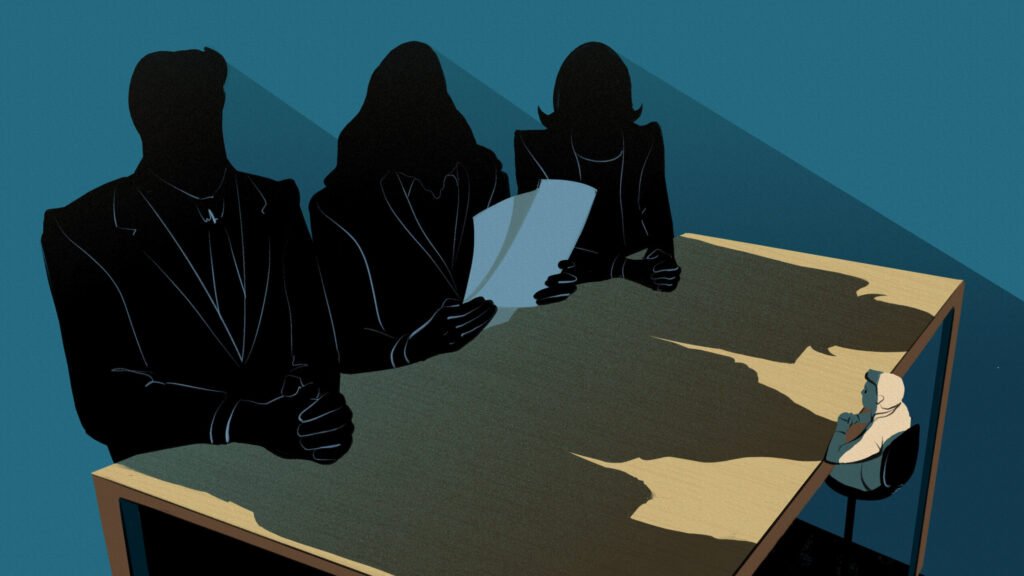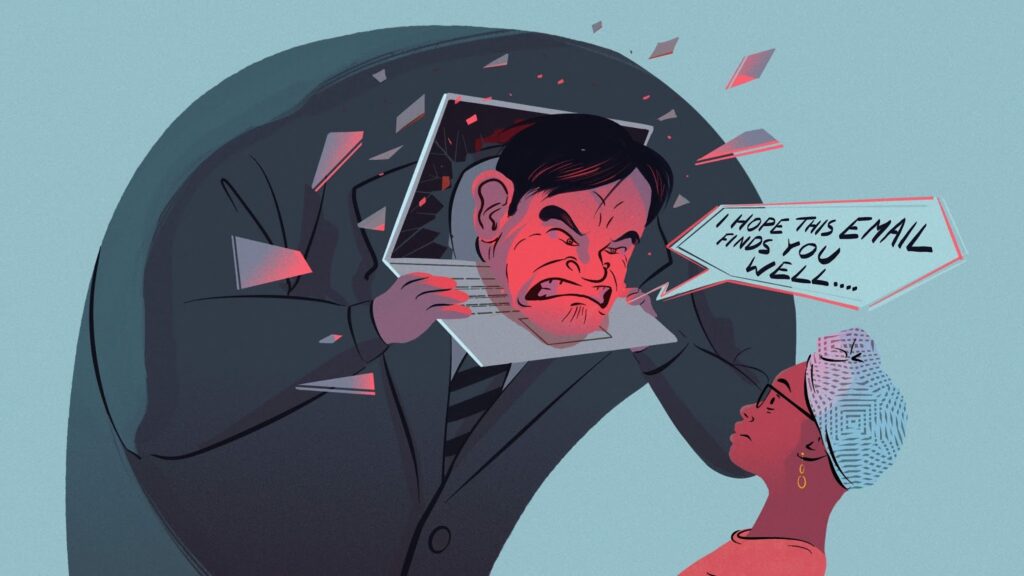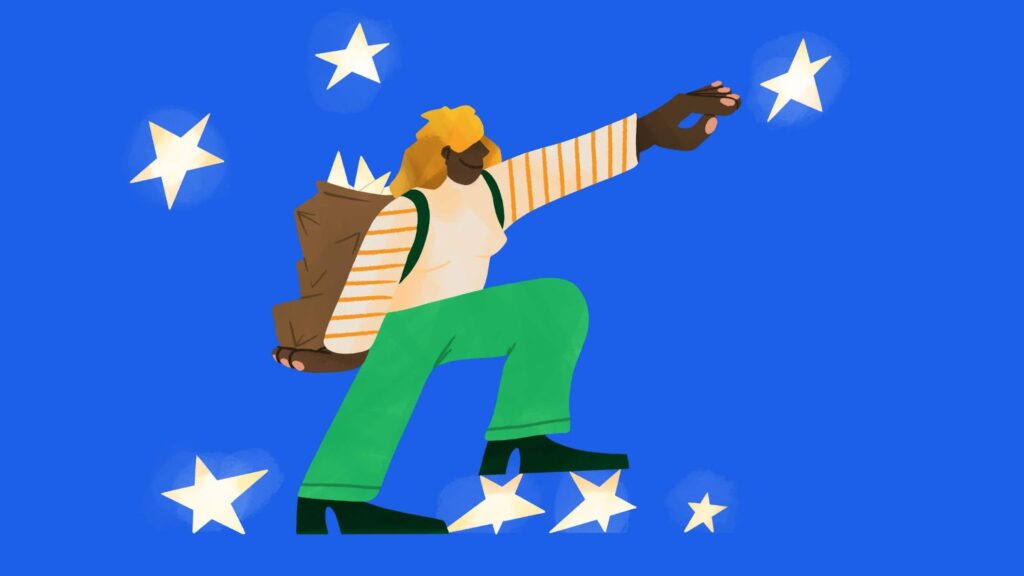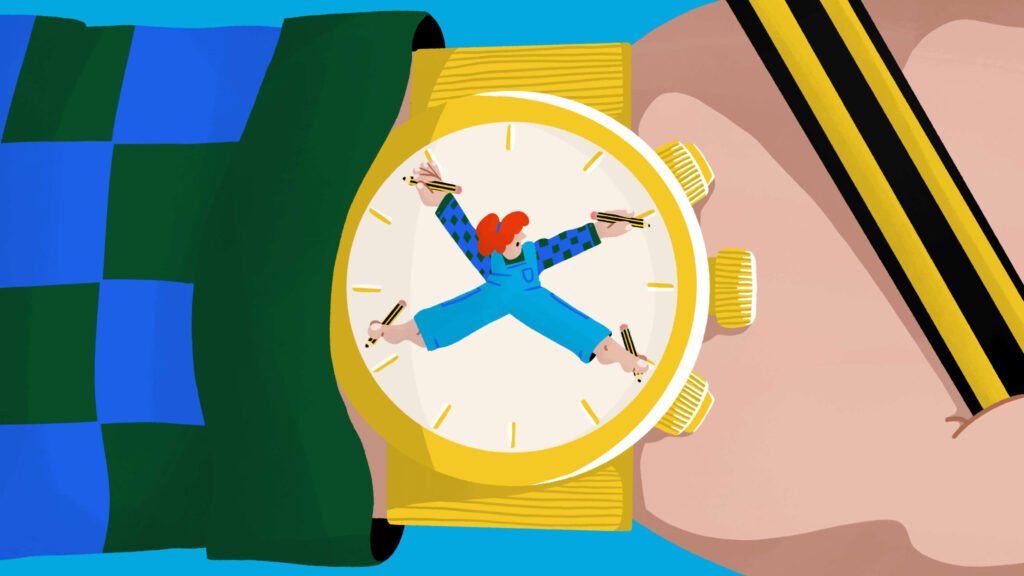When entering freelance life, it’s easy to feel like you’ve left the tedium of everyday office problems behind. But in some careers and especially in the creative industries, interviews and “informal chats” remain a part of the job.
These conversations can manifest when working with a new company, a member of staff you’ve never collaborated with before or if you’re taking on a different type of role or promotion. I have worked in the media industry for 11 years for various television production companies and broadcasters, so I usually meet my new bosses for a chat or interview before being offered a role.
Sometimes this is merely a formality if I’ve been recommended for a position, or in the case of the BBC, it’s a publicly-owned company so they have to adhere to an official process. While this can be frustrating, it has put me in the unusual place where I’ve had well over 50 interviews for these positions and I’ve learnt a lot in the process.
It’s not often discussed, but the interview process can really chip away at your self-esteem. I’ve cried at the inevitable rejections and I have many friends in the industry who’ve experienced a blow to their confidence after losing out on a job.
I will start off by saying that the most important element to consider and preserve in any career is your sanity. Remember that an interview rejection is not about your character, it’s about your experience. Even then, there are factors beyond your control like someone else may be in mind for the job, the project gets cancelled or there’s a whisker between you and another candidate.
Interviews and chats also take up a lot of mental energy so the ability to switch off and have some downtime afterwards, even if it’s just a walk around the block, is essential. Remember that you’re not alone in feeling bad about yourself due to something that happened at work as it can affect us all, but you do need to find a way to separate yourself from your job to preserve your mental health.
It’s also helpful to have some kind of process for interviews in order to protect not only your time but your finances and feelings too. This is mine that I’ve honed over the past decade and I hope it helps you too.
Do your due diligence
Before agreeing to a chat or interview, try to get a sense of what it is about to make sure that it’s worth your while to attend. Ask if there is anything you need to bring with you or prepare in advance which will help you to discern how it will play out once you get there. If you know anyone at the company that you have worked for or have a personal relationship with, you could ask them if they have any details prior to deciding whether to go or not.
Sometimes it’s worth going even if they have someone in mind, but sometimes it isn’t if there are no other roles available. If someone wants a chat but they don’t have any roles coming up in the near future, it might be better to wait until they do.
What to wear
When it comes to what to wear, I would say that smart casual is your friend. It’s not usually necessary to make loads of effort for a chat, but you don’t want to be too relaxed either, especially if it turns out to be a more formal interview than you were expecting. Unless you absolutely need to wear it, avoid formalwear like suits entirely as they’re not only uncomfortable but can take precious time and effort to clean and iron. It’s important to wear things that are not only comfortable and smart but also fit well as worrying about a wardrobe malfunction can be a real distraction.
What to bring
Before an interview or chat, I always bring my phone for obvious reasons, but also so I can look things up at the last minute. I use it for ideas, research into a person or just so I’m clued up on what is happening in the news that day. I also use it to make notes but you can also use paper and pen so you’re not staring at your phone. Sometimes it helps to bring notes on the job description, ideas or to jot things down that you want to come back to during the interview.
Prepare for any questions you can
One classic question that comes up time and again is ‘why do you want this job?’ It’s vital to be able to explain what appeals to you about that role and briefly mention the skills and experience that you can bring to the table. If it’s just a chat then you can mention what you like about the company, your turnaround times, other companies you’ve worked for and existing useful relationships as well as your skills and experience.
After that many questions will revolve around the job description, so it can be helpful to jot down bullet points like project management skills or sub-editing with examples next to each one. Sometimes you’ll be given a scenario where you describe what you would do in a certain situation, so if you break down each stage it will give you more thinking time to make sure you include each element.
Sometimes managers or HR representatives like to throw a curveball questions such as describing your worst qualities or how you prepared for the interview. Questions like this tend to come in and out of fashion depending on how they’ve been trained to interview people. Remember to use the STAR method (Situation you’ve dealt with, the Task you were given, the Action you took and what happened as a Result) to ensure all bases are covered.
Reward yourself and recover
When leaving an interview it’s easy to play it over in your mind as you might have said something you wouldn’t normally say when you’re under pressure. Chats like this can be emotionally draining so taking time to recover and congratulate yourself for getting through it is essential! Whether it’s a coffee or an episode of your favourite show, make sure to distract yourself with something you enjoy as a reward.




